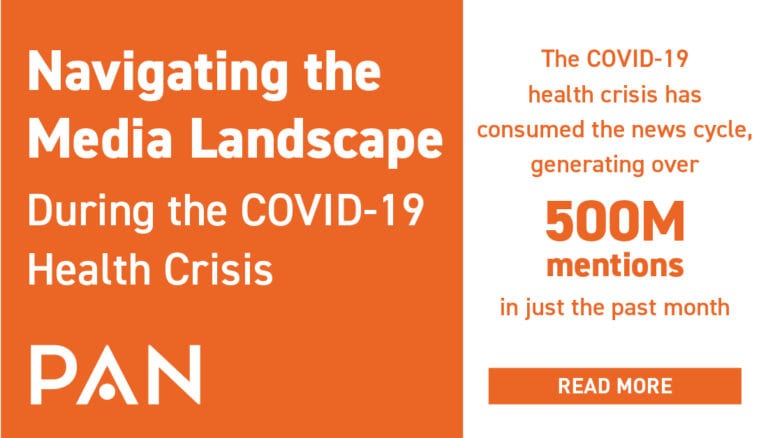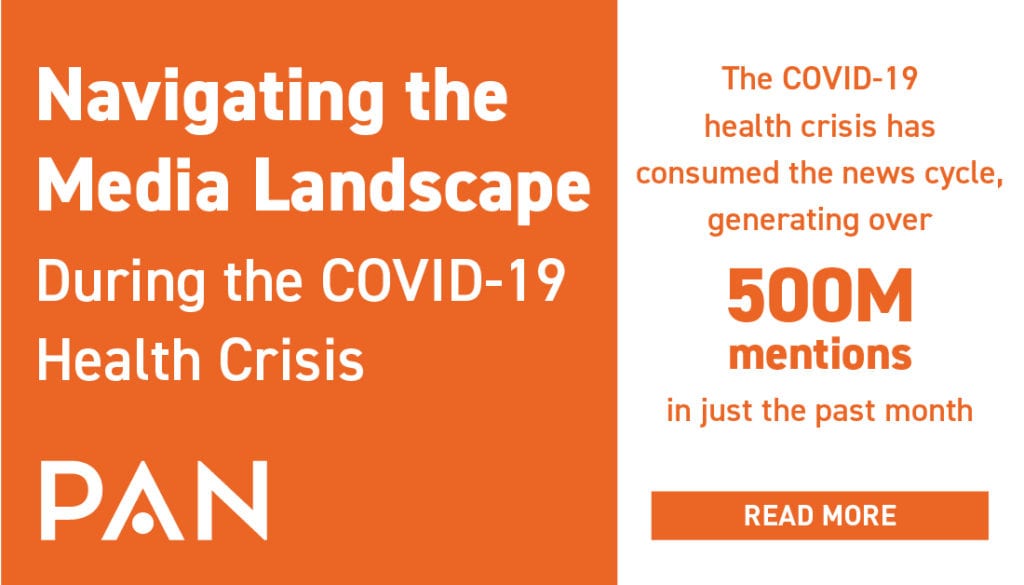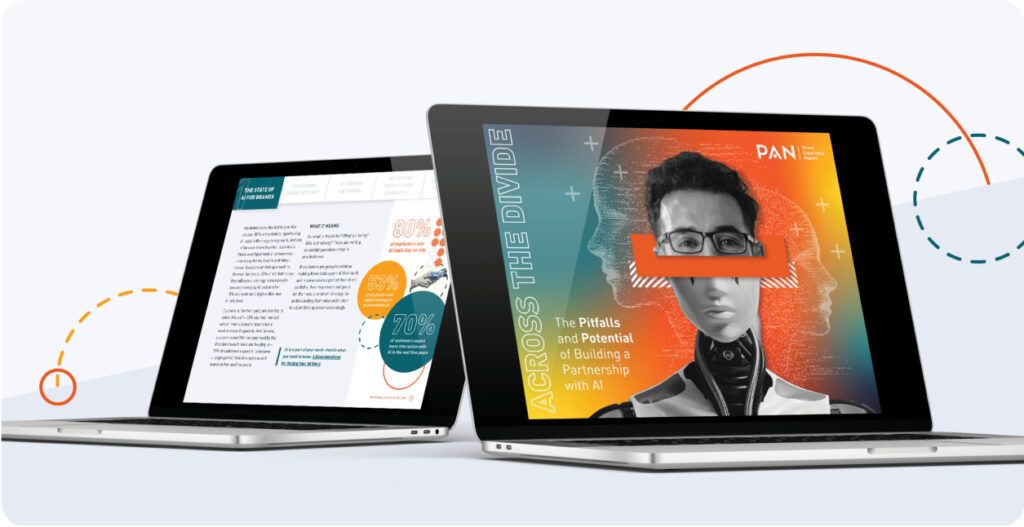Part of our role at PAN is to provide guidance on how to navigate the ever-changing news landscape. But when the news cycle shifts as dramatically as it did over the past month, with almost every story tying back to COVID-19, sometimes it’s best to go right to the source.
Over the next few weeks, our media team will be unveiling a series of Q&As with reporters in various industries to learn more about how they’re currently adjusting their beat and overall approach to storytelling. Up first we have Ari Levy, Senior Technology Reporter at CNBC, and Mara Leighton, Senior Commerce Reporter at Business Insider.
What type of story are you trying to tell right now, and how has the spread of COVID-19 (and its domination of the news cycle) changed your beat?

Levy: We’ve been working from home for four weeks today. We all realized no more than a day or two into working remotely that we had to rip up our planned editorial list. Any story that we were working on at that point that wasn’t related to COVID-19 instantly became irrelevant. I was working on an election-related story about Joe Biden’s public data. It wasn’t a big story, but it’s the type that typically does pretty well on our site. It got completely buried – no one read it. And that was when a lot of people were still talking about the election. So that was my big moment of realization. We all had our moments of realizing that nothing but COVID-19 was relevant, including everything that was currently a work in progress.
We all started thinking about “what is our beat?” and “what are going to be the most important stories on our beat over the next few weeks?” in relation to COVID-19. We reached out to the companies or people that were most significant to our beat to take their pulse. At this time, everything moved so quickly. It went from companies recommending employees not come in if they aren’t feeling well to work at home orders. In the meantime, all these conferences were going from physical to virtual, or being cancelled. I had a story in the works on the technology being used at events to mitigate the concerns around the virus. That story never got published because the events went from scheduled to cancelled or totally virtual over the course of a week or two.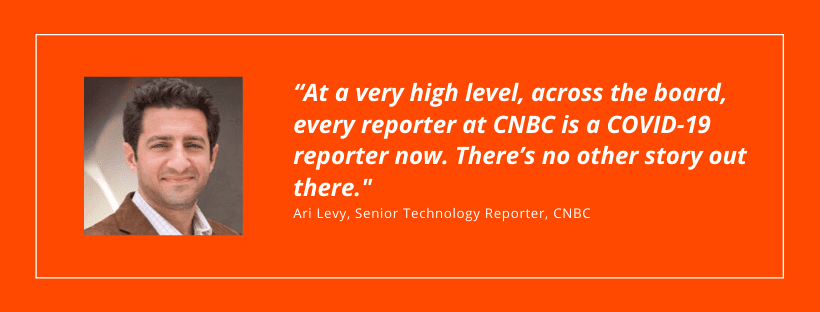
In the beginning, breaking news was stories on which companies were working from home, and which were cancelling events. Initially, one or two cases of COVID-19 at a company was news, but soon it wasn’t as we started to see the numbers go up rapidly.
At a very high level, across the board, every reporter at CNBC is a COVID-19 reporter now. There’s no other story out there. For us, that story can be related to the economy, the market, to health, to how companies are operating, to work from home, etc. There’s never been another time in my career where everyone was focused on the same thing.
Leighton: I’m now covering 75% e-learning, and the rest is style and beauty content. For e-learning, I’m writing stories for people looking for new job opportunities/skills and for people stuck at home looking to be productive. I’m also writing on the broader topic of accessible education. For style and beauty, I am still covering new products, DIY/at-home versions of everyday life, and writing broader consumer trends analysis.
In today’s unprecedented environment, what sources are you looking to speak to?
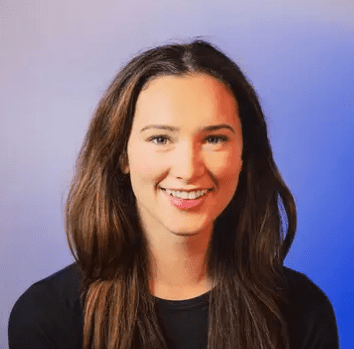 Leighton: Most frequently, I am looking to speak with medical professionals (nurses, doctors, psychologists) and public health experts. I’m also looking to hear from retail and e-commerce analysts who are focused on interpreting and forecasting consumer behavior. For other coverage, I’m talking with estheticians, dermatologists, and beauty service workers/experts.
Leighton: Most frequently, I am looking to speak with medical professionals (nurses, doctors, psychologists) and public health experts. I’m also looking to hear from retail and e-commerce analysts who are focused on interpreting and forecasting consumer behavior. For other coverage, I’m talking with estheticians, dermatologists, and beauty service workers/experts.
Levy: Angles that are important to me are the ones that are not being adequately explored or explored at all. Regardless of the environment, what often happens is you write a story, and the companies and PR firms that are interested in that topic pitch you a related topic. Or if there’s a big theme that everyone is focusing on, you get inundated with pitches saying, “Hey, we have people who can talk to that theme.” I don’t get past the first or second line of most pitches emailed to me.
If there’s someone I know, who knows the kinds of stories that I’m typically interested in writing, and knows we want to explore important angles that aren’t being adequately covered or only being covered in the trade press, that’s most valuable to me.
There are all sorts of angles to COVID-19, and we know those angles are out there – but we don’t necessarily know what they are. When someone has 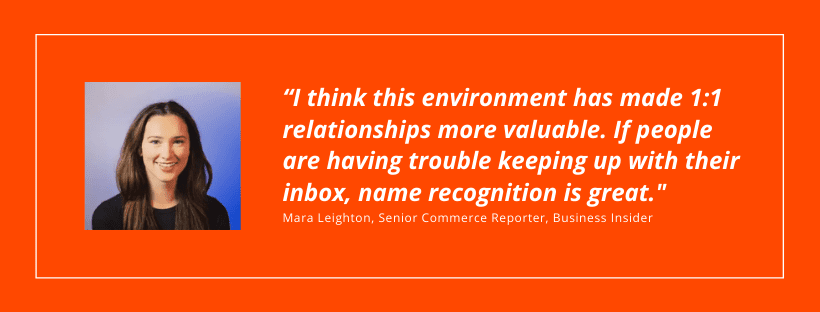 information that is specific to the thing they do, insight that would be helpful in our coverage, that’s what I’m really on the lookout for.
information that is specific to the thing they do, insight that would be helpful in our coverage, that’s what I’m really on the lookout for.
Has working from home changed how you’d like to be pitched?
Leighton: I think personalized, to-the-point emails always work best for me. So no, though I think it’s made 1:1 relationships more valuable. If people are having trouble keeping up with their inbox, name recognition is great — sometimes I’ll search by name. Otherwise, I’m typically searching my inbox by company or topic.
What trends are you seeing? Any breaking developments you anticipate?
Levy: The things I’m on the lookout for are the longer-term changes in how we work and do business. I have been anticipating since the first week of this crisis that it will have a huge, long-term impact on business travel. Specifically, airlines, 4 and 5-star hotels, Airbnb, etc. Anything involving travel, but mostly involving business travel, will have a huge long-term and economic shift. People will realize they don’t need to fly that much, and they don’t need to travel to spend one day for a sales or marketing meeting anymore. I hope that vacations, personal and family travel come back, but it would be healthy for us to take a very big step back with how much business travel there is. That’s a long-term story that we’ll be interested in.
From a technology standpoint, there are the tools we’re all using now, like Zoom and Slack, that are showing their value in ways we haven’t anticipated, or at least didn’t anticipate this quickly. I think there’s another set of tools that cater to the remote work trend that will see a ton of growth. For example, the infrastructure behind work from home is a very different infrastructure than cloud. I anticipate that’s what venture investors will put money toward right now. I think the next fallout from this is all the companies tied to tech and tourism forced into mass layoffs because the business simply isn’t there. Where do those people go? Will we see the very well-capitalized tech companies get aggressive in recruiting now, given that it’s been so hard to hire talent in recent years?
The other interesting story will be which of those people starts companies. The downturn can be a great opportunity to start a company. Those stories will start to be out there soon as well.
Leighton: I’m seeing e-learning companies creating subscription models and increasing accessibility. The next thing I am watching will be how colleges handle the fall semester. For style and beauty, I’m focused on DIY.
Stay tuned for insights from more reporters shortly!

